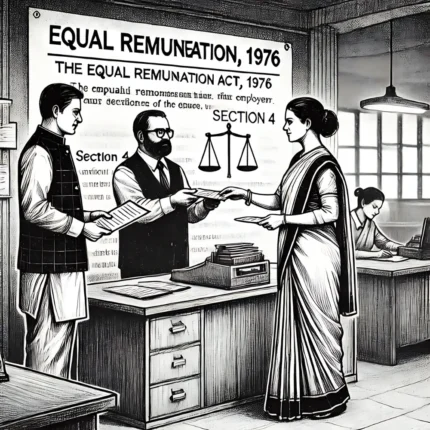What Is Public Trust Doctrine In India?
Overview
The Public Trust Doctrine in India, reinforced by the Bharatiya Nyaya Sanhita (BNS) and Bharatiya Nagarik Suraksha Sanhita (BNSS), ensures that certain natural resources are protected and managed for the public good. This doctrine aligns with Articles 48A and 21 of the Indian Constitution, which guarantee the right to a clean and healthy environment. The Supreme Court has consistently upheld this principle, preventing the misuse and exploitation of these resources to safeguard the public interest and ecological balance.
What Is the Public Trust Doctrine in India?
The Public Trust Doctrine in India is a legal principle that asserts that certain natural resources, such as air, water, and forests, are held in trust by the government for the benefit of the public. This means that these resources cannot be sold, leased, or otherwise used for private gain. The government, as the trustee, has a duty to protect and preserve these resources for the common good and ensure that they are not exploited in ways that harm the environment or public welfare. Under the BNS and BNSS, this doctrine has gained greater emphasis, with judicial interpretations reinforcing the duty of the government to uphold environmental protections and public rights in relation to natural resources.
Judicial Interpretations and Application of the Public Trust Doctrine under BNS and BNSS
The Public Trust Doctrine has become a cornerstone in India’s environmental law, ensuring that natural resources are preserved for the benefit of future generations. Under the Bharatiya Nyaya Sanhita (BNS) and Bharatiya Nagarik Suraksha Sanhita (BNSS), judicial interpretations have further reinforced this principle, emphasizing the government’s responsibility to act as a trustee of natural resources and to protect them in the public’s best interest. Courts have consistently applied the doctrine to prevent the degradation of natural resources and prevent actions that would harm the environment or public welfare.
Limitations: The Public Trust Doctrine imposes certain limitations on the government’s role under the BNS and BNSS:
1. Preservation of Natural Resources: Certain natural resources, even if not directly used by the public, must be preserved and regulated by the government to serve the public welfare. The BNS and BNSS reinforce the duty of the government to ensure that these resources—such as forests, rivers, and air—are preserved for public benefit and cannot be privatized or exploited solely for commercial purposes.
2. Public Interest: The management and use of these resources must align with the public interest. Their use should prioritize ecological sustainability, public health, and social welfare over economic gain. The BNS and BNSS strengthen the legal framework that ensures that resources are not over-exploited or misused in ways that might harm the environment or the public.
3. Regulation and Oversight: The doctrine sets legal parameters for the management of natural resources, preventing excessive exploitation or unauthorized commercialization. It mandates that the government, as the trustee, exercise responsible oversight over these resources, ensuring that their use is regulated and sustainable.
Importance of the Public Trust Doctrine under BNS and BNSS
The Public Trust Doctrine, as reinforced by the BNS and BNSS, is crucial in strengthening environmental governance in India. By providing a legal framework, the doctrine limits arbitrary state control over natural resources and ensures that these resources are managed transparently and accountably. Under BNS and BNSS, this doctrine becomes an essential statutory safeguard against environmental degradation, complementing other environmental protection laws in India. It provides a mechanism for the protection of resources essential to public welfare, ensuring that they are used sustainably and preserved for future generations. By upholding the Public Trust Doctrine, India’s legal system enforces long-term conservation efforts and sustainable practices, in line with constitutional mandates and judicial precedents.









Reviews
There are no reviews yet.